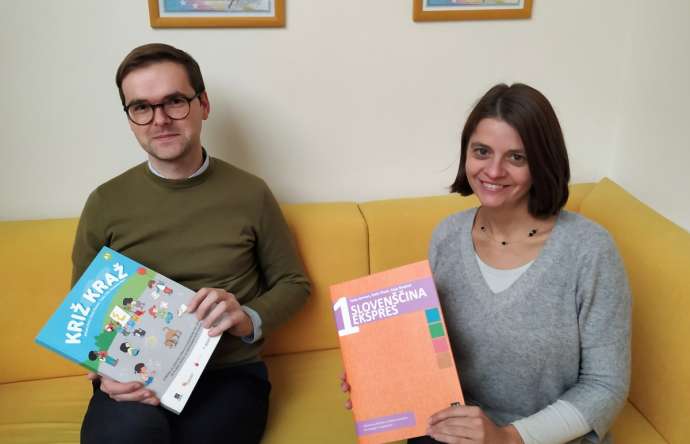Tanja Jerman and Matej Klemen are teachers of Slovene at the Centre for Slovene as a Second and Foreign Language, and have taught for quite some time in Slovenia and around the world. They are also authors of several textbooks and other publications for learning Slovene. We got in touch with them asked some questions about their experiences teaching this often challenging language.
1. People say that Slovenian is one of the hardest languages to learn. What are your thoughts?
Matej: This is a common thing to say. However, I think Slovene is just as easy or just as difficult – if you want – as any other language. Starting learning any language with the mental set ‘this is so difficult’ is definitely not helpful. If you speak another Slavonic language, learning Slovene is not difficult at all, as far as I can judge from my experience teaching Slavonic speakers. As for English speakers, it might be that they experience some difficulties when starting learning Slovene as the languages are quite different. Once they grasp the structure of Slovene, they are fine. Some of my students who speak English as their first language now work as translators from Slovene into other languages, researchers etc.
Tanja: I agree with Matej and of course disagree with the stereotype of Slovene being a difficult language. To add a couple of things, Slovene uses Latin script, has quite a few borrowed words and all this helps the language learners. At the beginning of the course, I like to tell my students that Slovene only has three tenses: only one past, only one present and one future tense. This cheers them up a bit. There might be quite a lot of endings regarding nouns and adjectives. However, if you compare Slovene to let’s say Finnish or Hungarian with their 15 or 18 cases, respectively, Slovene is a piece of cake with only six of them.
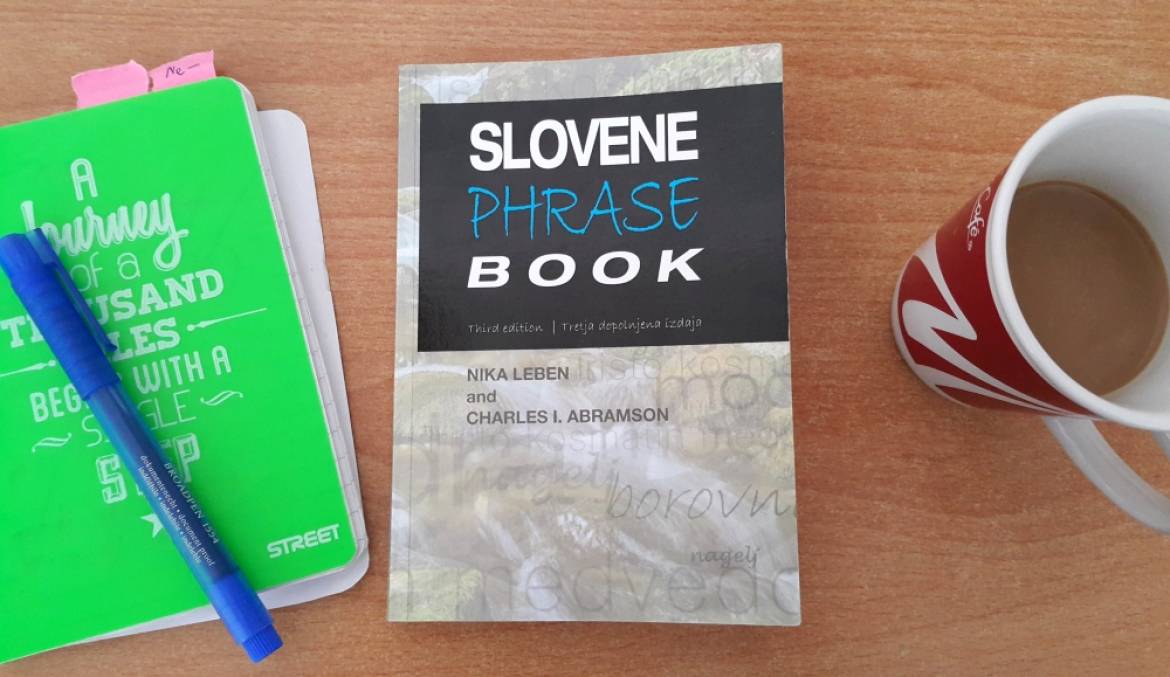
Photo: JL Flanner
Related: New Courses & Nationality Exam Prep at the Centre for Slovene as a Second & Foreign Language
2. Tell us about the typical experiences of foreigners who come to you to learn Slovenian as total beginners – the problems they face, the things they find easy, when people stop learning, etc.
Matej: Our philosophy at the Centre for Slovene is that there are practically no beginners in Slovene. Everyone knows at least something. I only once met a person who wanted to join our courses and she said she knew absolutely nothing. It turned out that she knew three Slovene words (and really only three!): sol (salt), mleko (milk), kosmiči (cereal). She picked them up from packages in the store. As a teacher, I have to see this potential and use it to facilitate learning, acquiring new vocabulary.
Tanja: Once the students grasp the phonetics of Slovene, they realise how easy it is actually to read and write in the language. However, they have to invest some time in learning vocabulary and above all they need to practice speaking. This quite often presents a problem for our students. People in Slovenia tend to switch from Slovene into the foreign language they speak, so the students of Slovene struggle to find a partner to talk to in Slovene. Thus, one of the first phrases I teach them is Učim se slovenščino. Prosim, govorite slovensko.
At the Centre for Slovene, we try to make the learning process as comfortable as possible, on the other hand also as useful and authentic as possible. At the very beginning, we teach the most frequent phrases and vocabulary, basic and useful grammar structures. We do not overburden students with exceptions, irregular verbs etc. if it is not absolutely necessary.
Matej: When do our students stop learning? I believe that when they reach the level they need, once they run out of time, money… Some of them return to our Centre again and again as the learning process is a never-ending story.
Learn about the Centre's Ivan Cankar boardgame here
3. So many foreigners seem to have a mental block about learning Slovenian, especially if they can live and work here without learning the language. How do you 'unblock' that mentality?
Tanja: As person decides to learn a new language, they are usually already ‘unblocked’ and have already made the first step. My task as a teacher is to motivate this person to make progress, to support them on their way. Every little success in communication, in comprehension (e.g. being successful in buying some fresh vegetables at the Ljubljana market in Slovene, giving a compliment to your mother-in-law, etc.) shows their progress in language learning and brings satisfaction.
Matej: There might be sometimes a person who really concentrates on speaking perfectly and not making any mistakes rather than speaking fluently or speaking at all. I try to explain that knowing all of the details of the grammar will not get them anywhere if they do not relax and speak. By creating a relaxed and supportive atmosphere in the classroom, I am usually successful in this.
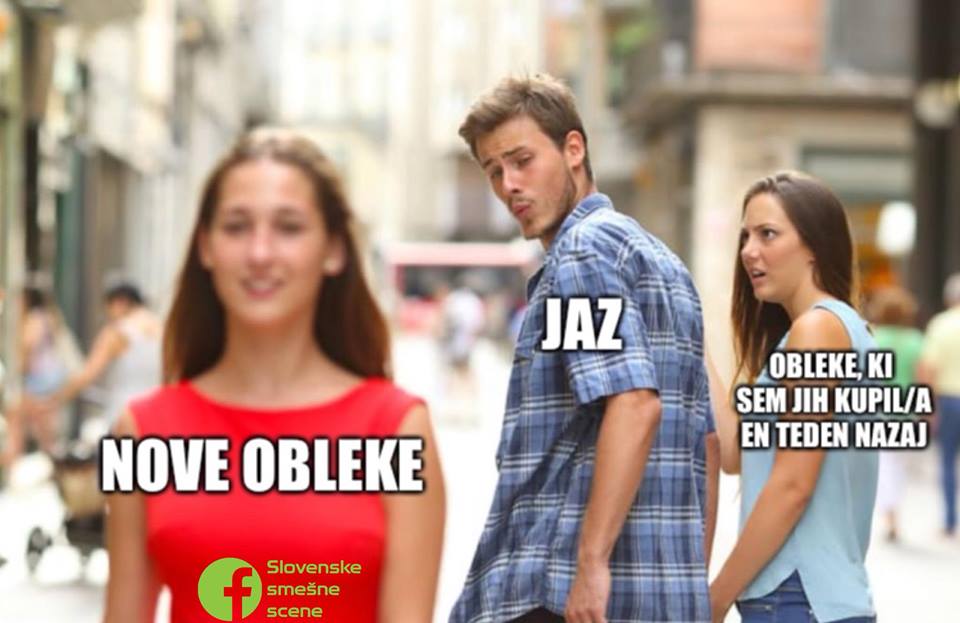
Learn Slovene with memes, with more for you here
4. Language errors can be funny. Are there any common one’s that make native speakers laugh?
Tanja: A very useful phrase, especially in summer is ‘I’m hot’. Please, do not translate it word by word! You will end up with Vroč sem! or Vroča sem! It would sound inappropriate or you might give a person the wrong impression – advertising yourself as a hot babe. The adjective vroč (hot) is normally used with weather (vroče vreme – hot weather, vroč dan – hot day). When feeling hot, use a phrase Vroče mi je. Also, I would not swear by the Google translate. I once came across a sentence Vabim te na datum., literally: I’m inviting you for a date. where the word date stands for ‘a particular day’. Google translate was not able to realise the person wanted to invite me to a different thing, i.e. zmenek.
Matej: One of the most frequent verbs is iti (to go), which is irregular. It’s really important to learn its specific forms. If you simply follow the standard rules, you might end up with a sentence like Včeraj sem grel plavat. (Yesterday, I warmed swimming.) instead of Včeraj sem šel plavat. (Yesterday, I went swimming.).
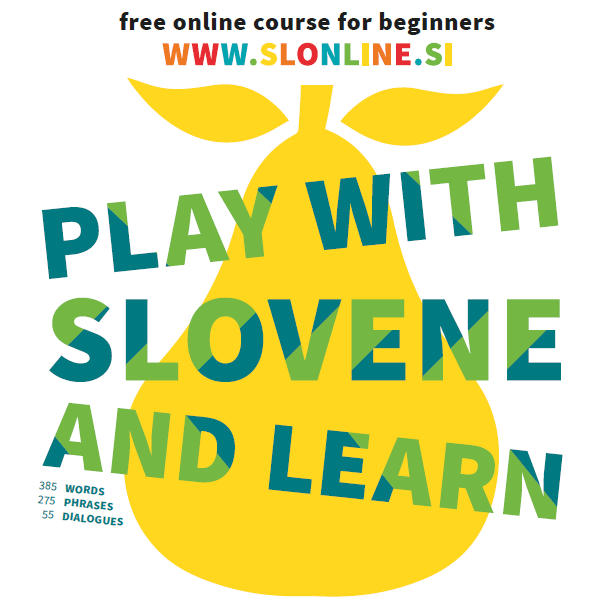
Learn more about the course for learning Slovenian online here
5. What do you find difficult about speaking English?
Matej: For me, finding the right expression can be tricky. Regarding grammar, I have always struggled with if clauses. If (!) I begin a sentence and manage not to remember it’s an if-clause, then I am OK. However, if my brain senses the sentence is an if-clause it just melts, and the result can be barely intelligible.
Tanja: Oh, don’t be silly! I told you so many times that grammar is not the most important bit of the language. However, it is true that some Slovenes tend to ignore some English grammar rules. Just listen to our English and you will hear all the difficulties we encounter in using tenses (perfect tenses specifically), definite and indefinite articles, in ignoring the difference between long and short vowels. Guess what a sheet becomes in Slovene pronunciation. We are sometimes close to the Italian guy from the following joke.
6. Learning Slovene is a serious business. Why should people sign up for a course at the Centre, and what is on offer with your language school?
Matej: The courses at Centre for Slovene have been around for more than 30 years. We are a part of the Faculty of Arts, University of Ljubljana. The Centre has an expertise in researching and developing the field of Slovene as a second and foreign language, teaching, testing and certifying language proficiency. We also publish textbooks and handbooks for teachers, organise teacher trainings. We’ve recently developed an on-line course www.slonline.si which has proved very popular around the globe as it is available in seven language combinations free of charge. In short, we really are the centre regarding Slovene as a foreign language.
Tanja: I would also like to point out our experienced teachers and quality materials. As already mentioned, we create a stimulating environment where our students reach the best results. We offer courses all year round for adults as well as for young learners, on different levels from A1 to C2, for professionals as well as language lovers. Our offer is always updated on our web site. So there are no excuses not to join us.
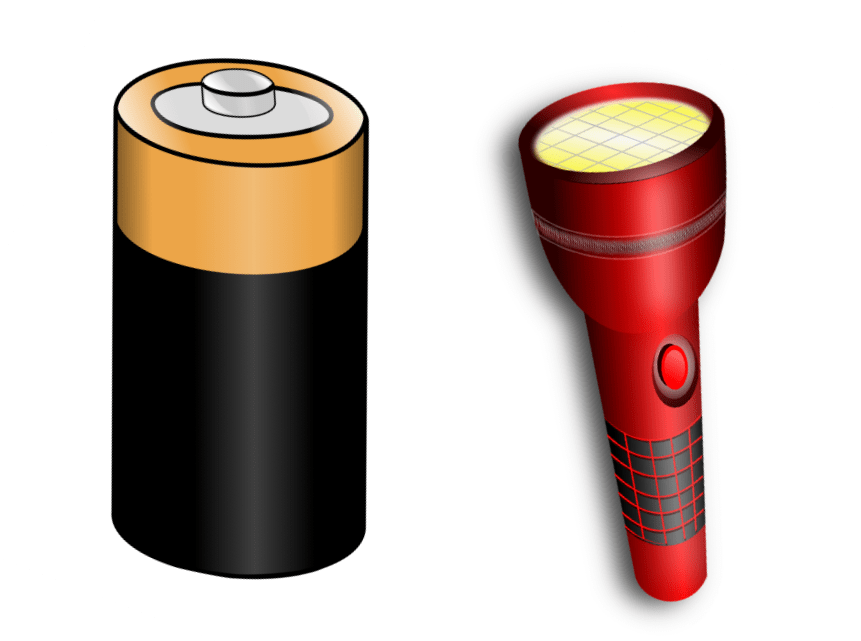
Learn some false friends in English and Slovene here
7. What’s your best advice for people learning Slovenian and thinking about giving up?
Matej: Find a minute or two every day to do something relaxing related to Slovene: listen to a pop song, watch a YouTube video, cook a recipe from a Slovene cook book, check a Slovene blog post, scroll through some news site… Something you like to do. It does not need to be a lot of time but it is important to keep the contact with the language. You have to take the initiative. You might as well follow us on our Twitter, Facebook or Instagram.
Tanja: Slovenes are very happy to hear a foreigner speaking even the basic words in Slovene. We do appreciate the effort. It is good to keep this in mind!
8. What are some Slovenian cultural products that foreigners who learn the language should be aware of?
Matej: I like to play quite a few Slovene songs in my classes. As the festive time is getting closer, my recommendation is a classic Bela snežinka. It might be a bit old fashioned but if you listen to it, you will learn some basic vocabulary and get to know a Slovene evergreen which will get you into the festive mood.
Tanja: Also, do not forget about potica – the famous festive walnut yeast-dough cake.
You can learn more about the work of the work of the Centre for Slovene as a Foreign Language, and perhaps sign up for a course, free online or in person here
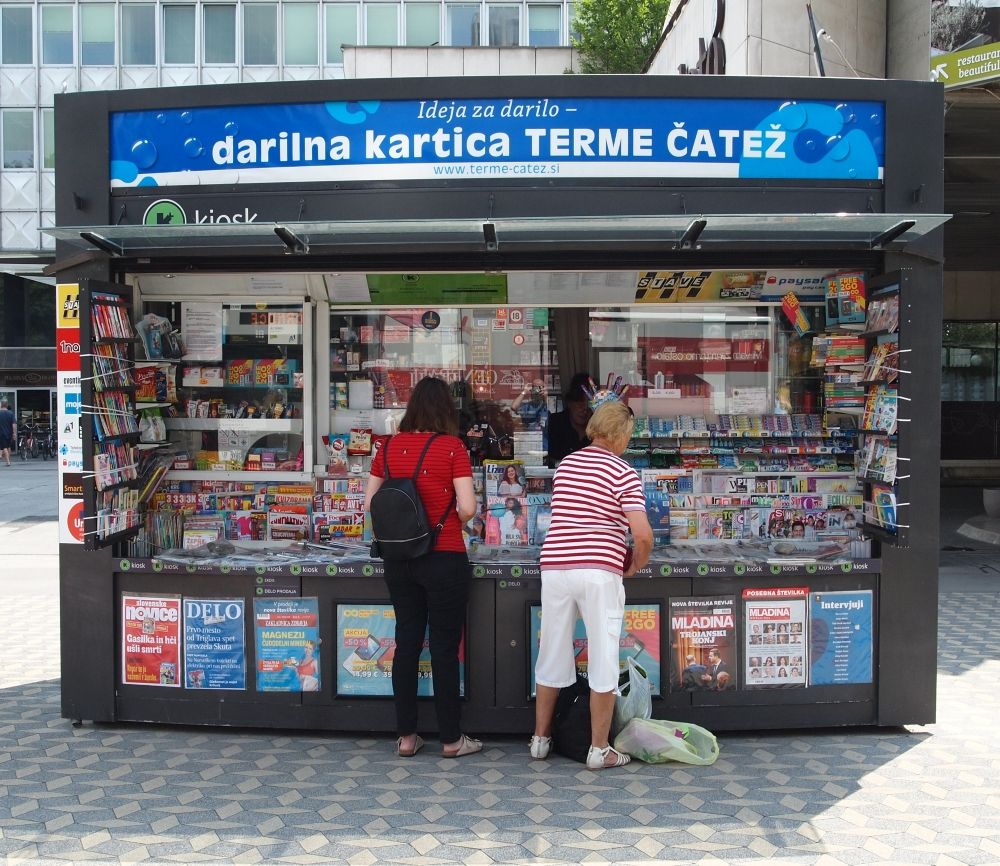
Photo: JL Flanner
Want someone to hold your hand while you're reading Slovene? Check out our weekly Slovene-English dual texts.

